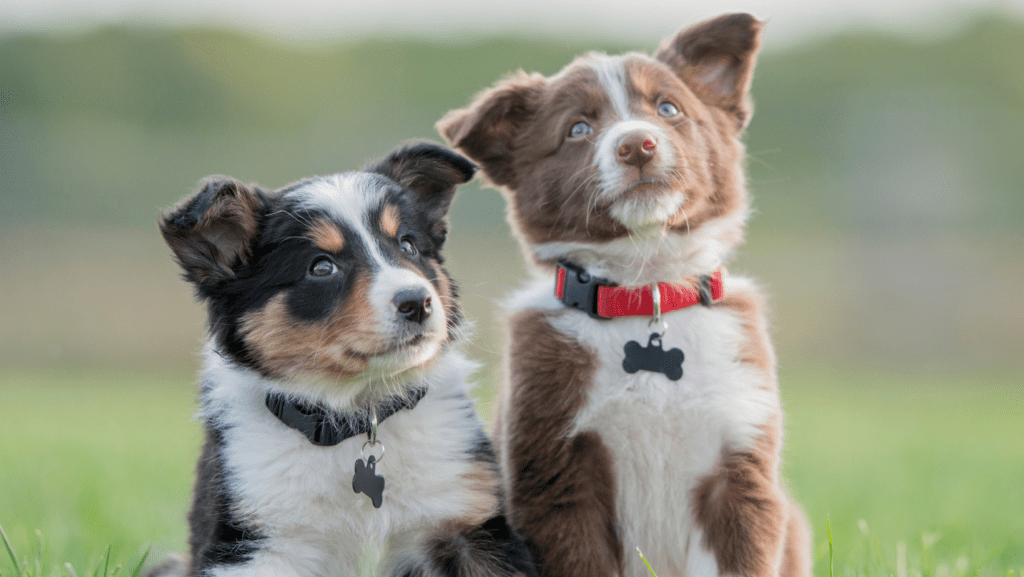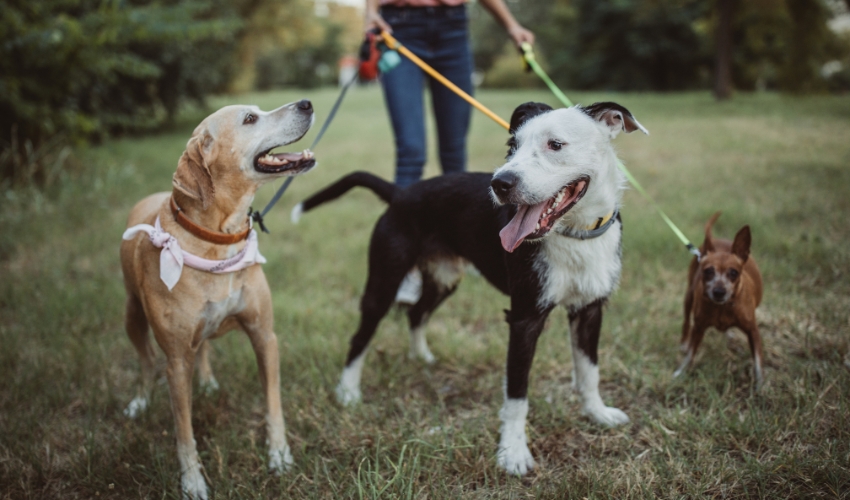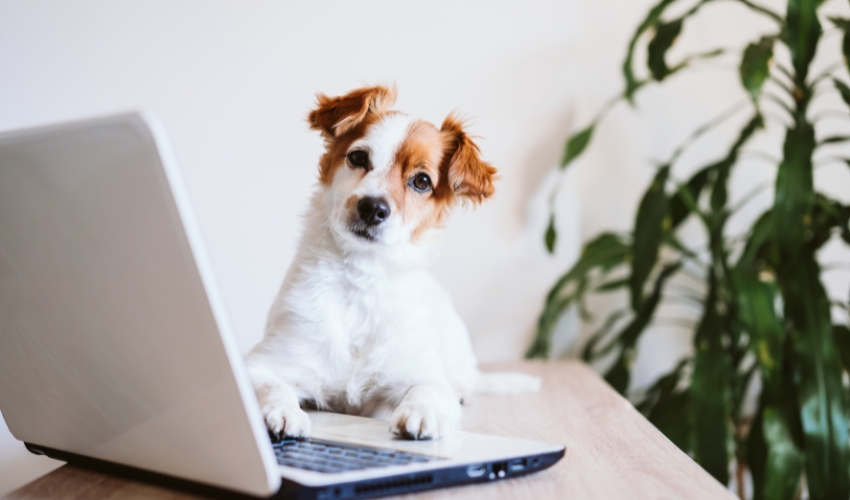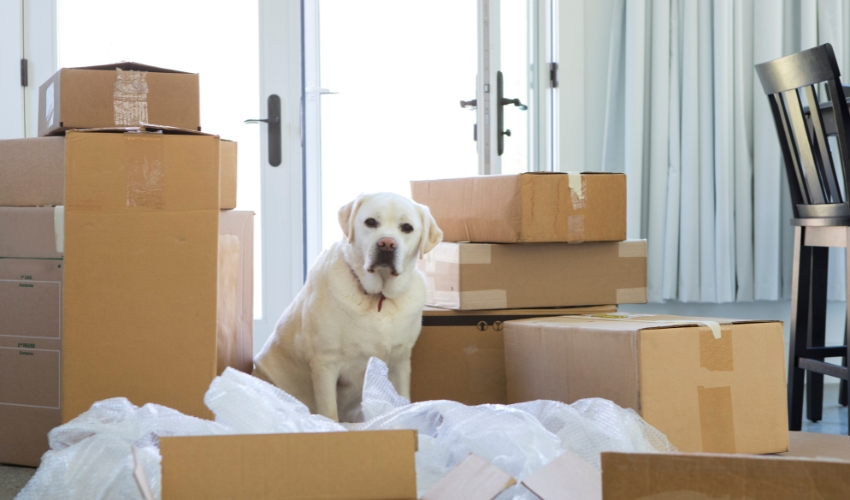For many pet owners, leaving their furry companions alone can be a source of guilt and worry, especially when faced with the heart-wrenching cries and destructive behaviors of a dog suffering from separation anxiety. But fear not! With the right knowledge and strategies, you can help your anxious pup feel more secure and comfortable when left alone. In this comprehensive guide, we’ll explore the causes, treatment options, prevention strategies, and alternative approaches for dealing with separation anxiety in dogs. Let’s embark on a journey to ease the heartache and provide our beloved canine companions with the support they need to thrive.
Understanding Separation Anxiety in Dogs:
Causes of Separation Anxiety:
Separation anxiety in dogs can stem from a variety of factors, including:
- Early life experiences: Dogs that have experienced trauma or instability in their past may be more prone to separation anxiety.
- Change in routine: Significant changes in the owner’s schedule or living environment can trigger anxiety in sensitive dogs.
- Lack of socialization: Dogs that have not been adequately socialized or are overly dependent on their owners may develop separation anxiety.
- Genetics: Some dogs may have a genetic predisposition to anxiety disorders, including separation anxiety
Recognizing the Symptoms:
Dogs with separation anxiety may exhibit a range of behaviors when left alone, including:
- Excessive barking or howling
- Destructive chewing or digging
- Urinating or defecating indoors
- Pacing or restlessness
- Attempts to escape or flee
- Drooling or panting excessively
- Loss of appetite or decreased activity levels
Diagnosing Separation Anxiety:
Diagnosing separation anxiety in dogs typically involves a thorough evaluation by a veterinarian or animal behaviorist. This may include a review of the dog’s medical history, a physical examination, and a discussion of the dog’s behavior and environment. In some cases, additional diagnostic tests may be needed to rule out underlying medical conditions that could contribute to anxiety-like symptoms.
Treatment Options:
Behavioral Modification Techniques:
Behavioral modification techniques are often the cornerstone of treatment for separation anxiety in dogs. These may include:
- Gradual desensitization: Slowly acclimating the dog to being alone through short absences and gradually increasing the duration over time.
- Counterconditioning: Pairing the experience of being alone with positive rewards, such as treats or toys, to create a positive association.
- Environmental enrichment: Providing engaging toys, puzzles, and activities to keep the dog mentally stimulated and distracted while alone.
- Calming pheromones: Using synthetic pheromone products, such as diffusers or sprays, to create a sense of security and calm in the dog’s environment.
Medications:
In some cases, medications may be prescribed to help alleviate the symptoms of separation anxiety and support behavioral therapy efforts. These may include:
- Antidepressants: Selective serotonin reuptake inhibitors (SSRIs) or tricyclic antidepressants (TCAs) may be prescribed to help regulate mood and reduce anxiety levels in dogs.
- Anti-anxiety medications: Benzodiazepines or other anti-anxiety medications may be used on a short-term basis to provide immediate relief during behavioral modification therapy.
Professional Training and Support:
Working with a qualified animal behaviorist or certified professional dog trainer can be invaluable for developing a personalized treatment plan and implementing effective behavioral modification techniques. These professionals can provide guidance, support, and feedback to help you address your dog’s separation anxiety in a positive and constructive manner.
Prevention Strategies:
Early Socialization:
Start socializing your dog from a young age to help build confidence, resilience, and independence. Expose them to a variety of people, animals, environments, and experiences in a positive and controlled manner to help prevent anxiety-related issues later in life.
Gradual Desensitization:
Gradually accustom your dog to being alone for short periods from an early age, gradually increasing the duration over time. This can help prevent separation anxiety from developing by teaching your dog that being alone is a normal and non-threatening part of life.
Establish a Routine:
Establishing a consistent daily routine can provide structure and predictability for your dog, helping to reduce stress and anxiety. Stick to regular feeding times, exercise sessions, and bedtime rituals to create a sense of stability and security for your furry friend.
Alternative Approaches and Home Remedies:
While conventional treatments are often effective for managing separation anxiety in dogs, some pet owners may explore alternative approaches and home remedies to complement traditional therapies. These may include:
Herbal Remedies:
Some herbs, such as chamomile, valerian root, and lavender, have natural calming properties that may help soothe anxiety in dogs. These herbs can be administered orally as herbal supplements or diffused in the air as aromatherapy.
CBD Products:
Cannabidiol (CBD) products derived from hemp may offer potential benefits for dogs with anxiety disorders, including separation anxiety. CBD oil, treats, or capsules can be used to help promote relaxation and reduce stress levels in anxious dogs.
Therapeutic Music or Sounds:
Playing soothing music or white noise in the background can help create a calming atmosphere for dogs with separation anxiety. Some pet-specific music playlists or soundtracks are specifically designed to promote relaxation and reduce anxiety in dogs.
Maintaining a Healthy Lifestyle for Dogs:
In addition to addressing specific anxiety-related issues, maintaining a healthy lifestyle is essential for supporting overall well-being and mental health in dogs. Here are some tips for promoting a healthy lifestyle for your canine companion:
Regular Exercise:
Provide plenty of opportunities for physical exercise and mental stimulation to help keep your dog happy, healthy, and mentally balanced. Regular walks, play sessions, and interactive games can help burn off excess energy and reduce stress and anxiety levels.
Balanced Nutrition:
Feed your dog a balanced and nutritious diet that meets their specific nutritional needs and supports overall health and well-being. Choose high-quality dog food formulated for their age, size, breed, and activity level, and avoid feeding excessive amounts of treats or table scraps.
Quality Sleep:
Ensure your dog has a comfortable and safe sleeping area where they can rest undisturbed. Provide a cozy bed or blanket in a quiet corner of your home, away from any potential sources of noise or disturbance, to promote quality sleep and relaxation.
Positive Reinforcement:
Use positive reinforcement techniques to reward desired behaviors and encourage your dog to feel confident, secure, and well-behaved. Praise, treats, and affectionate gestures can help strengthen the bond between you and your dog and reinforce positive associations with being alone.
Dealing with separation anxiety in dogs can be challenging, but with patience, understanding, and the right strategies, you can help your furry friend feel more secure and comfortable when left alone. By understanding the causes, symptoms, and treatment options for separation anxiety, implementing proactive prevention strategies, exploring alternative approaches and home remedies, and maintaining a healthy lifestyle for your dog, you can effectively manage separation anxiety and provide your canine companion with the care and support they need to thrive. Always consult with your veterinarian or a qualified animal behaviorist for personalized advice and recommendations tailored to your dog’s individual needs and circumstances. Together, we can ease the heartache and help our anxious pups lead happy, healthy lives filled with love, security, and peace of mind.













